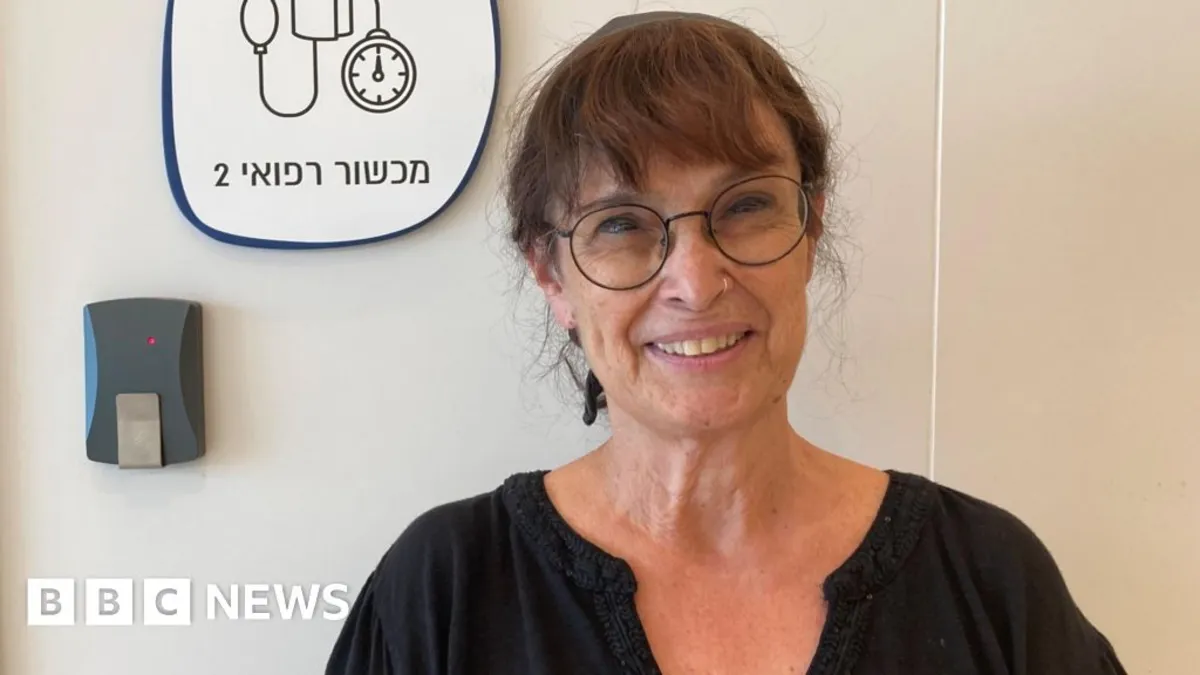
As the first hostages are released by Hamas in Gaza, their journey takes them into Israel, where they are transferred by helicopter to the Rabin Medical Center in Petah Tikva. Dr. Michal Steinman, the head of nursing, is there to welcome them, taking them up to the sixth floor where they will finally reunite with their closest family members after enduring more than 700 days in captivity. "It is a privilege," Dr. Steinman reflects. "These are the moments I will remember when I'm 70 or 80. They symbolize so many values – as a nurse, as a mother, as a woman, as an Israeli."
Under the terms of the agreement between Israel and Hamas, twenty living hostages are set to be released, several of whom will be brought to this hospital. This marks the third operational deployment of the hostages' unit at the Rabin Medical Center. On a recent Saturday, the BBC visited the unit as the medical team received information about the identities of the hostages they would be treating. "There is no such field as captivity medicine, and we are inventing it," Dr. Steinman explained, highlighting the unique challenges they face.
The medical staff has gleaned two significant lessons from earlier hostage releases in November 2023 and January of this year. The first is the necessity of being a "medical detective." Dr. Steinman notes that understanding what transpired during the long days and nights of captivity is crucial. "With earlier, often emaciated, shackled, and beaten hostages, there were abnormalities in their blood tests that we couldn't initially interpret," she explained. The effects of captivity can linger, often presenting symptoms that may not manifest for days or even weeks. "Captivity does things to your body that your body remembers," she added.
Presently, the team continues to care for hostages who returned in January and February, discovering new medical challenges weekly. The second lesson emphasizes the importance of taking time. A diverse team of professionals, including nutritionists, social workers, and mental health specialists, collaborates alongside a full spectrum of medical staff. However, the hospital has adopted a unique approach to recovery: each released hostage's private room features a "do not disturb" card, echoing a hotel-like atmosphere.
The environment is intentionally designed for comfort, with care packages, soft furnishings, and ambient lighting complementing the hospital beds and monitors. An extra single bed is available for those hostages who prefer not to be alone overnight, allowing a partner or relative to stay close. Additionally, their closest family members are provided with a bedroom directly across the corridor, ensuring they remain nearby during this critical time.
"You know medical people are task-oriented. There's a schedule," Dr. Steinman noted. "Here, you have to give them much more space. You have to determine what's urgent and what can wait." The staff must be humble and flexible while maintaining their medical responsibilities, particularly in assessing the dietary needs of hostages who may have lost significant weight during their captivity.
Karina Shwartz, the director of social work at the Rabin Medical Center, plays a vital role in this process. She is responsible not only for the hostages but also for their closest relatives. "They need to learn their own delicate calibration of family dynamics – when to speak and when not to," Shwartz explains. The unspoken elements of communication are crucial during this time. "If we’re in the room and someone shares a difficult experience about their captivity, and we remain silent, that silence speaks volumes," she adds.
At the same time, it is essential to exercise restraint. "We can't condense two years into a week," she emphasizes. The hostages require space, time, and tranquility to begin their healing journey. "We have to listen," Shwartz concludes, underscoring the importance of hearing their stories as they navigate the complexities of recovery.